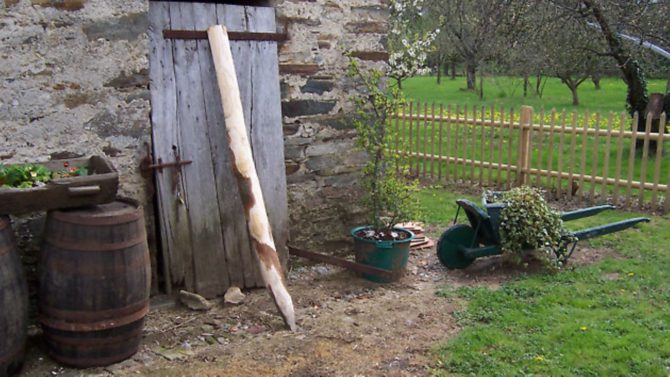How to maintain your second home

Ian Blackshaw offers practical advice to maintaining your holiday home in France
Some friends of ours have a 17th-century estate worker’s holiday cottage in the Loire Valley which they visit from time to time. Every time they do so, they seem to find something that needs repairing or replacing. Being keen DIY-ers, they also tend to spend most of their holidays doing the necessary works themselves.
No matter where you are in the world, country properties need lots of TLC to keep them windproof and watertight. If you do not live there the whole time and are not able to do what is required yourself, you will need to find a reliable local builder who can carry out the maintenance work for you. Often your French neighbours will be able to recommend someone suitable, but as a general rule you need to be there when this work is being done to ensure that it is done on time and completed to your satisfaction.
Each year, you should perform a sort of mini survey of your property, both inside and outside, especially the latter.
FROM THE OUTSIDE
Woodwork may need to be painted or revarnished, especially if you own a wooden chalet in the mountains. It’s important you keep on top of this as it’s much easier to repaint sections at a time than having the ordeal of doing everything at once. Plus, unprotected wood can rot very quickly.
Garden furniture may need to be refurbished, especially garden benches which are kept outside. Fences may need to be repaired or replaced. If you have a pond, it may need to be cleaned. Brickwork may need to be repointed, especially where mortar is starting to turn to dust through the passage of time and the effects of the elements.
FABRIC OF YOUR HOME
Any cracks on your inside or outside walls need to be checked to ensure that there is no structural damage. Your friendly local builder can advise you on whether these are hairline cracks or something more serious. If they are superficial the walls can just be painted with flexible paint or replastered. If there is damage, they may need to be reinforced with ties or require more work to be done.
Other jobs include replacing broken roof tiles, cleaning out the guttering, and with timber-framed properties, you will also need to check regularly for signs of woodworm as well as dry and wet rot.
Chimneys may need to be swept and unsafe chimney stacks repointed.
SERVICE YOUR FACILITIES
If you are not on mains sewerage but rely on a septic tank to dispose of your liquid waste and/or sewage, this may need to be cleaned out periodically.
Your central heating boiler may need servicing in order to ensure that it working efficiently and, in these times of high energy costs, economically.
Also, check for signs of unwanted rodents in your cellars or in the roof spaces which may need to be closed off to prevent entry. One useful device for keeping mice and rats at bay is a sonar device that emits ultrasonic frequencies, which they dislike. This is plugged into the mains and generally has a range of about 46m² providing 24-hour protection at a relatively low cost. This device is claimed by manufacturers to be safe near children, cats and dogs. Leaving bait around, on the other hand, might not be.
IN THE TRADE
Don’t forget that there are experts and professionals that you can call on for advice. Whatever jobs need doing – big or small – always get a written estimate from the tradesman concerned of the costs involved before embarking on any work. Also be clear on what is and what is not included in the price, as well as the timescale.
There are many things to keep an eye on to preserve and maintain your property but one word of warning needs to be sounded. Even if you enjoy DIY, which may be a cheaper option, there are some maintenance jobs that are probably best left to the experts. Otherwise, your enthusiasm for DIY could land you in a load of trouble and turn out to be a case of false economy.
Ian Blackshaw is an international lawyer
www.7valleysbandb.com
Share to: Facebook Twitter LinkedIn Email


